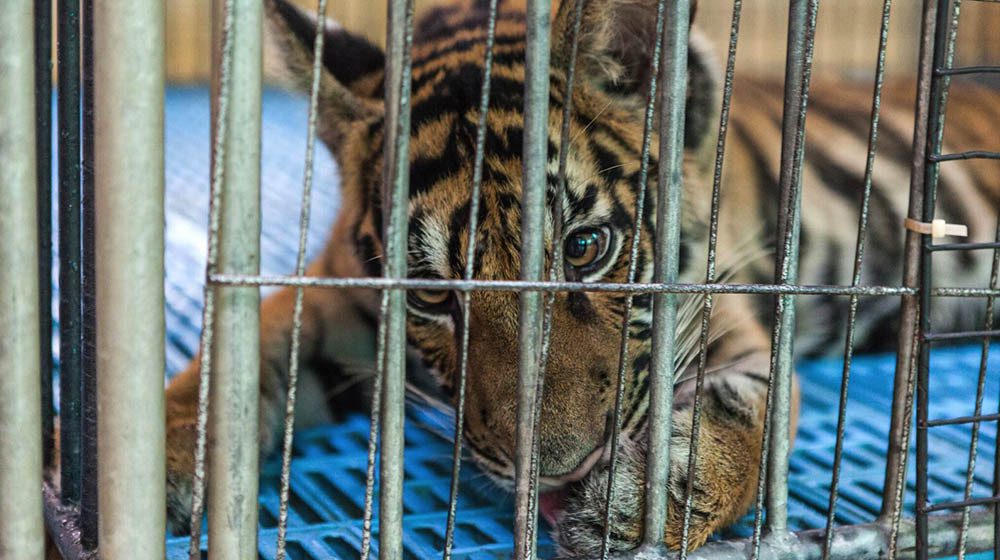You know the cruel fate suffered by a tiger living in captivity for the purpose of tourism, as does your colleague, boss & probably even your family members. But do your clients?
Despite increasing awareness among travel industry professionals over the consequences of tigers being used as tourist attractions, there’s still a shortage of knowledge among the general travelling public.
A survery conducted by World Animal Protection on Australians found that 37 percent haven’t considered the fate of tigers after their ‘pet and selfie’ duties are over.
If you’re as shocked as we were, read on for more:
HOLD UP, WHAT HAPPENS TO TIGERS WHEN THEIR SELFIE DAYS ARE OVER?

Image: World Animal Protection
Let’s start at the very beginning.
The cruel life of a tiger in captivity for tourism purposes starts when they’re cubs being used for entertainment on petting farms.
As they outgrow the ‘cute’ and ‘adorable’ baby phase, they’re moved on to ‘walking with lions’ experiences.
From there, according to World Animal Protection, they head to game farms for canned hunting after which their skins and heads are used for trophies and their bones are sold for medicines and wines.
While previously traders would have poached big cats from the wild, illegal trafficking has had a serious impact on the wild tiger population. This has resulted in an increase in retailers turning to captive-bred tigers at tourism venues.
Beyond tigers, jaguars are also at risk, with World Animal Protection discovering the gorgeous creatures are being poached in South America to fuel traditional Asian medicines.
Click here for more information.
HOW IN THE DARK ARE AUSSIE TOURISTS?

Image: World Animal Protection
They’re practically travelling with all lights switched off.
The survey found that while 37 percent of Aussies haven’t considered the future of Big Cats in captivity, only around three percent seemed to actually know that they’d one day be traded for body parts.
Surprising figures, especially when 40 percent of those taking selfies claim they’re doing it because they “love animals”.
Encouragingly, once informed of the tragic circumstances, some 57 percent express concern for the creatures by ruling out any future selfies.
WHY IS THERE SUCH A LACK OF AWARENESS?

Image: World Animal Protection
World Animal Protection’s Head of Campaigns, Ben Pearson, said that while the fate of older tigers is “often questioned” there’s never a satisfactory answer.
“It does not make economic sense for venues to keep adult tigers for their whole lives if they cannot profit from them through tourist attractions.”
Ben Pearson, World Animal Protection Head of Campaigns
“There are clear concerns that in Thailand and other tiger and big-cat keeping countries, the tourism market leads to the illegal trade of body parts or live animals.”
WHAT CAN I DO TO MAKE A DIFFERENCE?

Image: World Animal Protection
No pressure, but Travel Agents are best-positioned to get the message of animal cruelty across to the travelling public.
They have face-to-face time with Australian holidaymakers and a direct connection that most other bodies don’t.
Consultants can use this unique opportunity to educate, raise awareness and discourage any harmful activities/attractions.
“This International Tiger Day, World Animal Protection is urging travellers not to visit or support captive tiger cub activities.”
Ben Pearson, World Animal Protection Head of Campaigns
“With increased public engagement in protecting wildlife from illegal trade, it’s hoped we will be able to curb the trade significantly.”
Click here for more on how you can help make a difference.

